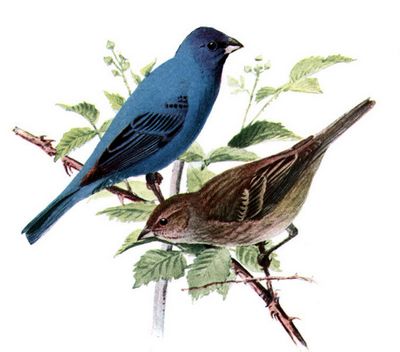Popular Posts
-
Anyone who has ever kept a pet rabbit has seen Mister Hoppypants gobble up feces like it was Cocoa Puffs. Bunnies like poop! So do hamster...
-
People spend a lot of time talking about the size of male genitals. One has only to type "jokes about penis size" in Google to...
-
In the United States, we are all familiar with the human sexual double standard from our developmental years in High School. Girls who ...
-
Yes, you read the title correctly. Other primates have spiny penises, including our closest cousins. The question is: why don't we? Se...
-
Imagine you are a theoretical male mammal. You recently hit puberty and are on the prowl. By this, of course, I mean you go out looking f...
-
Remember your high school prom? Some of you were fortunate to secure a date right away. If so, this article is not about you. But you ca...
-
Get your tickets while you can -- if you happen to be anywhere near London in the coming months. The Natural History Museum just opened...
-
If I was a contestant on Jeopardy, I probably would have guessed "What is Homo sapiens ?" But as Laura Tangley reports in her b...
-
Life as a sea turtle can be rough. Not only do you sometimes have to migrate hundreds to thousands of miles to reproduce, sometimes you get...
-
Would it surprise you to learn that some animals routinely engage in what can best be described as heavy petting? Indeed male and female s...
Sunday, February 13, 2011
Why do they DO that ???
When you were a kid, did you ever wonder why the little bird sings? Maybe you thought that was just how birds talk to each other. "Hey Bob! How are things with the wife and chicks?" Maybe you thought they do it to please the ears of the Creator that made them. The sounds are certainly pleasing enough to the ears of many humans. People even pay for CDs and MP3s of the stuff.
Wait a minute. Doesn't making all that noise attract unwanted attention? Like the attention of bigger birds that swoop in and eat little birds? Little birds that perch on the tips of branches, in the full sunlight (little COLORFUL birds), making a ruckus. A huge noisy ruckus that can be heard from far away.
Now that just doesn't seem very smart.
Fortunately for each songbird species (those birdies we humans classify in the Order Passeriformes), only half of them are bright, loud and stupid. The male half. Females, on the other hand (or wing in this case) tend to be rather quiet and retreating. And they are as a rule not very colorful at all. Check out the Indigo Buntings at the top of this entry. Which one is the female? Female songbirds are plain and quiet and dull and, well, camouflaged. Well camouflaged. Now THAT seems smart.
That's right. In the animal kingdom females are usually the smart ones.
Charles Darwin (you may have heard of him?) found this seemingly universal difference between male and female songbirds to be rather odd. Shouldn't there be ONE body color or means of communication that works well for both females and males? If natural selection favors quiet females that blend into their backgrounds, why doesn't it favor the same survival-promoting characteristics in males?
What struck Mr. Darwin as even more strange was that this difference between the sexes (sexual dimorphism) is not unique to songbirds. The same is true of many species of fish, amphibians, insects, and mammals (Homo sapiens comes to mind). It seemed that his tidy little idea of natural selection could not account for a great big chunk of all the species in the animal kingdom. Or even plants, many of which have distinctly different male and female flowers (guess which flowers are the largest and most colorful?).
Fortunately for him (and for all of us who study biology more than a hundred years after his death) Mr. Darwin was a brilliant naturalist. He might not have felt that way, but most scientists credit him with the greatest idea of all time. Wow, that's a tough act to follow!
But follow it he did. It occurred to Mr. Darwin that natural selection is not so much about survival, but rather it is all about reproduction. What good are traits that help you live a long time if you don't pass them on to anybody? And since males and females reproduce in dramatically different ways (consider the difference in size between a chicken egg and a chicken sperm) natural selection must operate differently on the two sexes. Female chickens need adaptations that help them make eggs - it takes a lot of extra food to make those eggs we so thoughtlessly crack on the skillet. Males don't need adaptations that help them get extra food. They need adaptations that help them get extra females!
Darwin called the process whereby males evolve characteristics that make them better at convincing females to have sex with them Sexual Selection. Let's face it. Some males are either sexier to females, strong enough to keep other males away from females, or both.
So THAT'S what all that cock-a-doodle-dooing is about!
And that, on many levels, is what this Blog is about. Why do animals do the things they do? Usually because it has something to do with making babies. But what do giraffe necks have to do with that? Or lions killing cubs? Or fireflies pretending to be the wrong species? Or snails that don't even bother having two sexes?
Why do they DO that?
Stay tuned.
Subscribe to:
Post Comments (Atom)






No comments:
Post a Comment